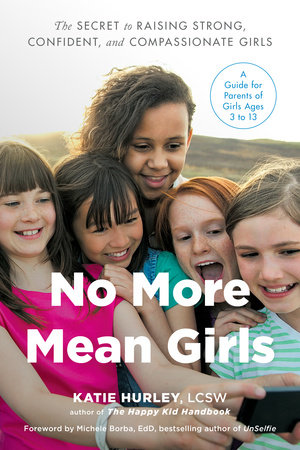Listen and Ask Questions
When Hurley asks her patients what they want from their parents, the response is almost always the same: “Listen and ask questions.”
“As parents, we are not great listeners,” said Hurley, “We are very busy, constantly trying to multitask. And we are often disconnected from kids because we are connected digitally.”
 When kids come to us with a problem, we tend to bounce between extremes -- either dismissing their concerns as “no big deal” or jumping in to solve their problems for them. Both take less time than the alternative: guiding and supporting them as they solve their own problems.
When kids come to us with a problem, we tend to bounce between extremes -- either dismissing their concerns as “no big deal” or jumping in to solve their problems for them. Both take less time than the alternative: guiding and supporting them as they solve their own problems.
“They need to know that it’s totally acceptable and normal to struggle at times,” said Hurley, “and we want them to come to us with their concerns. But we need to remember that parenting is about guidance, not controlling.”
In the height of emotion -- often immediately after school ends when they are tired and hungry -- girls sometimes “go into survival mode and use language at home that is more traumatic than what is really happening at school.” If parents match that level of emotion, they can intensify the situation.
For example, says Hurley, if your child shares an unkind comment she heard on the playground, don’t respond with, “ 'That kid is mean -- stay away from her!' That ends a friendship potential and doesn’t give your daughter room to work it out.” Instead, stay calm, gather information, and respond empathetically, using phrases such as, “This sounds hard. Can you tell me more about it?” or “Sounds like you had a rotten day. I understand. I have had those days, too.”
“Once they have vented and are not so tense inside their bodies, then you can start to brainstorm together,” said Hurley. Revisit the problem when they are calm and rested, allowing them to stay in the driver’s seat. For instance, if the struggle is whom to play with at recess, encourage them to “zoom out” and reflect on the big picture, perhaps drawing a map of the playground. Where does she go? What does she like to do? What activities do other kids do at recess? What’s one thing she wants to try tomorrow?
Practice Bravery
When girls think up a strategy they want to try -- such as asking a new person to play and joining a new activity at recess -- they also need to muster the courage to test it out. And that isn’t always easy.
“I have girls in my office who are petrified of taking risks,” said Hurley. “Perfectionism is on the rise, fear of failure is on the rise. Girls are socialized to be pleasers. That is a mistake. Girls should be socialized to be brave.”
It starts with our language. When young girls start climbing on the playground, do the adults reflexively say, “Be careful”? As parents, said Hurley, we can deliberately communicate the message, “We take risks to practice being brave.” For some girls, risks might look like climbing a tree and, for others, it might look like saying hello to someone new. Free time in nature, on the playground, on unstructured playdates, and with open-ended play materials provides an organic classroom for girls to strengthen their courage muscles and test their ideas.
They “need the time and space to try and fail again and fail again and fail again,” said Hurley. “When we step in and solve their problems for them, what we really communicate is, ‘I’m afraid you can’t do it well enough, so I’m going to do it for you.’ and that starts fear of failure.’ Step back, let them make choices.”
Teach Assertive Communication
Part of courage is finding one’s “brave voice,” said Hurley. Girls often confuse assertive communication with aggressive communication and then default to the other extreme: passivity. Assertive communication -- including making eye contact, speaking in a clear, calm voice, and listening patiently to others -- communicates self-respect and respect for the other person.
Families can make a game out of teaching assertive communication skills, said Hurley. “Host little presidential debates in your home. Run for ‘Queen of the Kitchen.’ Make a speech. Have a family debate night.” When your child really wants something, ask them to write a speech and give you her best persuasive argument.
Practice yields dividends. “When girls get in the habit of being assertive, it feels good,” said Hurley. “They feel like people want to listen to them. They say, ‘My teacher is calling on me more. My friends are listening to ideas.’ They feel more self-confident. And when one girl stands up and is more assertive, others start to do that as well.”
Model Resilience
“One of the best gifts parents can give their kids is the gift of their failures,” said Hurley. Tell your children stories about times you’ve tried and failed and bounced back. Our stories shape children’s understanding of how the world works. According to one study, children who hear stories about how family members and ancestors overcame obstacles are more resilient in the face of challenges.



